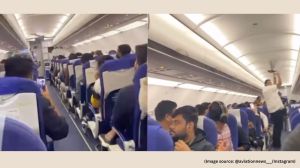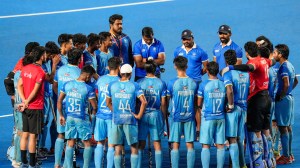While Infosyians in Bengaluru have made a smooth transition from private vehicles to public transport, their counterparts in the Hinjewadi software park in Pune are still waiting to do so. Like the other four lakh-odd software professionals commuting to Hinjewadi, they continue to navigate their way through horrendous traffic jams that show no signs of improving soon.
U Ramadas Kamath, executive vice-president at Infosys who is in charge of the company’s infrastructure and facilities, says the public transport body in the city has failed to respond to numerous letters written by the company to improve public transport and connectivity to the software park.

On an average, over four lakh employees commute to the Hinjewadi IT park from various parts of Pune and Pimpri Chinchwad. Although the area boasts of world-class office infrastructure, it is still a commuter’s nightmare. Unending traffic jams stretching for hours are the norm. One of the main reasons for traffic jams here is the large number of private vehicles, both four-wheelers and two-wheelers, which clog the road mostly during the morning and evening hours.
Planners and the technology companies have been talking about sustainable transport to reduce the vehicular population, but, as Kamath says, it has failed to materialise. “In Bengaluru, the public transport body has started point-to-point Volvo bus services from the Electronic City. The service has been hugely popular with the over two lakh employees of the Electronic City who have embraced it,” says Kamath, adding that these services have helped decongest the roads there.
In Pune, Kamath says, despite numerous correspondences with the public transport body in the city, the Pune Mahanagar Parivahan Mahamandal Limited (PMPML), there has been no progress. “The Hinjewadi area is not even on the metro routes,” he says.
Incidentally, the PMPML used to run 35 buses for Infosys till a few years ago, but the number has dropped over the years.
Anil Pandit, a resident of Kharadi, says he spends almost an hour in one-way commute to the software park. “As I travel on my bike, I can meander through the traffic and cut the waiting time by a few minutes,” he says. Due to unavailability of any form public transport connecting Kharadi to Hinjewadi, Pandit says he is forced to travel this distance on his motorbike.
Although Hinjewadi Industries Association (HIA) has started its own point-to-point shuttle service, its ridership is just a fraction of the people working in the software park. Anil Pahilwan of HIA says that at present, around 10,000 software professionals from the member companies use their service, which has over 100 buses plying on 82 routes.
Story continues below this ad
However, the software professionals say the service is not viable for many of them. Preeti Rautela says that since the bus picks up people from fixed points, it becomes a security issue for women employees at night. “Also, due to the fixed timings of the buses, many of us cannot adjust our working hours. The frequency of these buses should increase,”she says.
On its part, the PMPML says it has increased the frequency and number of buses on various routes connecting Hinjewadi.
Kailash Gawde, traffic manager operations at PMPML, says they run over 115-120 buses in Hinjewadi. “Our buses reach till phase III of the IT Park,” he says.
Asked about the reduction of the number of dedicated bus services, Gawde says they have in fact increased the frequency on the normal routes used by IT professionals and claims the ridership on these buses is good.








